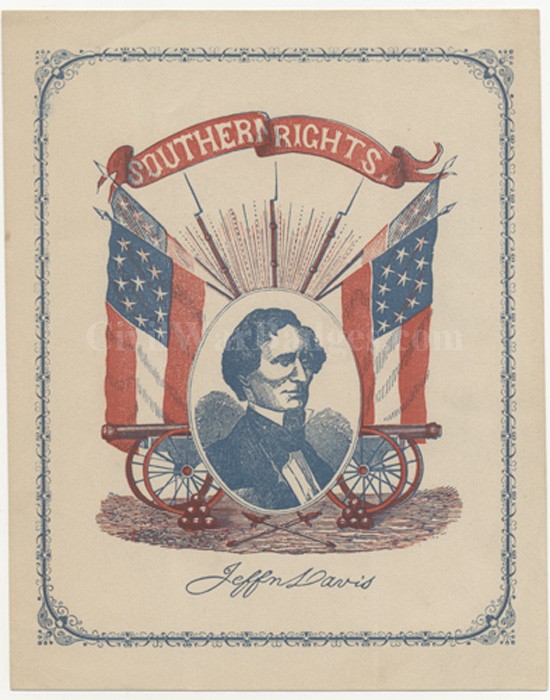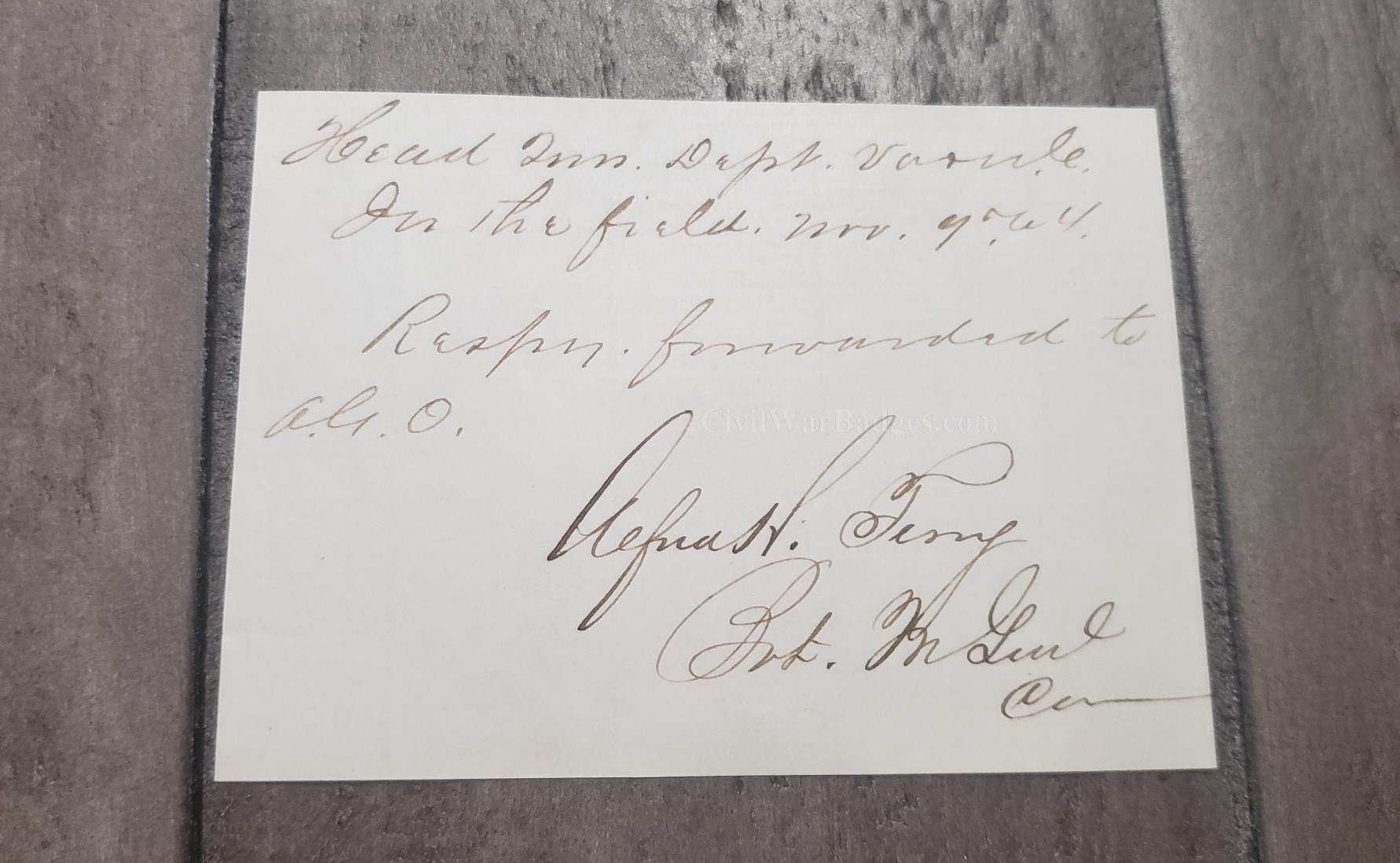MAJOR GENERAL ALFRED H. TERRY CLIPPED SIGNATURE
Item #: CWB13221
Click on an image to enlarge
2 1/4" X 3 1/4" CLIPPED SIGNATURE
Terry, Alfred H., major-general, was born at Hartford, Conn., Nov. 1O, 1827. After a partial course at the Yale law school he began the practice of law in 1849 and served from 1854 to 1860 as clerk of the superior and supreme courts of his state. When the Civil war broke out he took the field at once with the 2nd Conn. Militia, of which he had been in command for seven years. On the expiration of the three months for which his regiment had been called out by President Lincoln he organized the 7th Conn. infantry and led it to the front as colonel. He assisted in Gen. Thomas W. Sherman's expedition against Port Royal in 1862 and was soon afterward made brigadier-general of volunteers in reward for his services at Fort Pulaski. From 1862 to 1864 he took part in the operations against Charleston, Forts Sumter, Wagner and Gregg, on James island and Stono river, and as an officer in the Army of the James was engaged at Chester Station, Drewry's bluff, Bermuda Hundred, Deep Bottom, Fussel's mill, Petersburg, Fort Harrison, New Market road and Williamsburg road. He was brevetted major- general of volunteers Aug. 20, 1864. In Jan., 1865, he performed one of the most brilliant exploits of the whole war in the capture of Fort Fisher by assault after the failure of the first attempt under Gen. Butler. He took over 2,000 prisoners, 167 pieces of artillery, and 2,000 stands of small arms. This victory secured him a national reputation and he was further rewarded with a brigadiership in the regular army, a major-generalship of volunteers and a vote of thanks by Congress "To Brevet Maj.-Gen. A. H. Terry and the officers and soldiers under his command for the unsurpassed gallantry and skill exhibited by them in the attack upon Fort Fisher, and the brilliant and decisive victory by which that important work has been captured from the rebel forces and placed in the possession and under the authority of the United States, and for their long and faithful service and unwavering devotion to the cause of the country in the midst of the greatest difficulties and dangers." He afterward assisted in the capture of Wilmington and for his services there was brevetted a major-general in the regular army. After the war he commanded the Departments of Virginia, Dakota (where he fought the Sioux Indians), and the South. On March 3, 1886, he was promoted major-general in the regular army to succeed Maj.-Gen. Hancock. He retired from the service in April 1888, being at that time in command of the Division of the Missouri. He died at New Haven, Conn., Dec. 16, 1890.

Terry, Alfred H., major-general, was born at Hartford, Conn., Nov. 1O, 1827. After a partial course at the Yale law school he began the practice of law in 1849 and served from 1854 to 1860 as clerk of the superior and supreme courts of his state. When the Civil war broke out he took the field at once with the 2nd Conn. Militia, of which he had been in command for seven years. On the expiration of the three months for which his regiment had been called out by President Lincoln he organized the 7th Conn. infantry and led it to the front as colonel. He assisted in Gen. Thomas W. Sherman's expedition against Port Royal in 1862 and was soon afterward made brigadier-general of volunteers in reward for his services at Fort Pulaski. From 1862 to 1864 he took part in the operations against Charleston, Forts Sumter, Wagner and Gregg, on James island and Stono river, and as an officer in the Army of the James was engaged at Chester Station, Drewry's bluff, Bermuda Hundred, Deep Bottom, Fussel's mill, Petersburg, Fort Harrison, New Market road and Williamsburg road. He was brevetted major- general of volunteers Aug. 20, 1864. In Jan., 1865, he performed one of the most brilliant exploits of the whole war in the capture of Fort Fisher by assault after the failure of the first attempt under Gen. Butler. He took over 2,000 prisoners, 167 pieces of artillery, and 2,000 stands of small arms. This victory secured him a national reputation and he was further rewarded with a brigadiership in the regular army, a major-generalship of volunteers and a vote of thanks by Congress "To Brevet Maj.-Gen. A. H. Terry and the officers and soldiers under his command for the unsurpassed gallantry and skill exhibited by them in the attack upon Fort Fisher, and the brilliant and decisive victory by which that important work has been captured from the rebel forces and placed in the possession and under the authority of the United States, and for their long and faithful service and unwavering devotion to the cause of the country in the midst of the greatest difficulties and dangers." He afterward assisted in the capture of Wilmington and for his services there was brevetted a major-general in the regular army. After the war he commanded the Departments of Virginia, Dakota (where he fought the Sioux Indians), and the South. On March 3, 1886, he was promoted major-general in the regular army to succeed Maj.-Gen. Hancock. He retired from the service in April 1888, being at that time in command of the Division of the Missouri. He died at New Haven, Conn., Dec. 16, 1890.

Shipping Weight:
1 lb
Item # CWB13221
$125.00 USD



